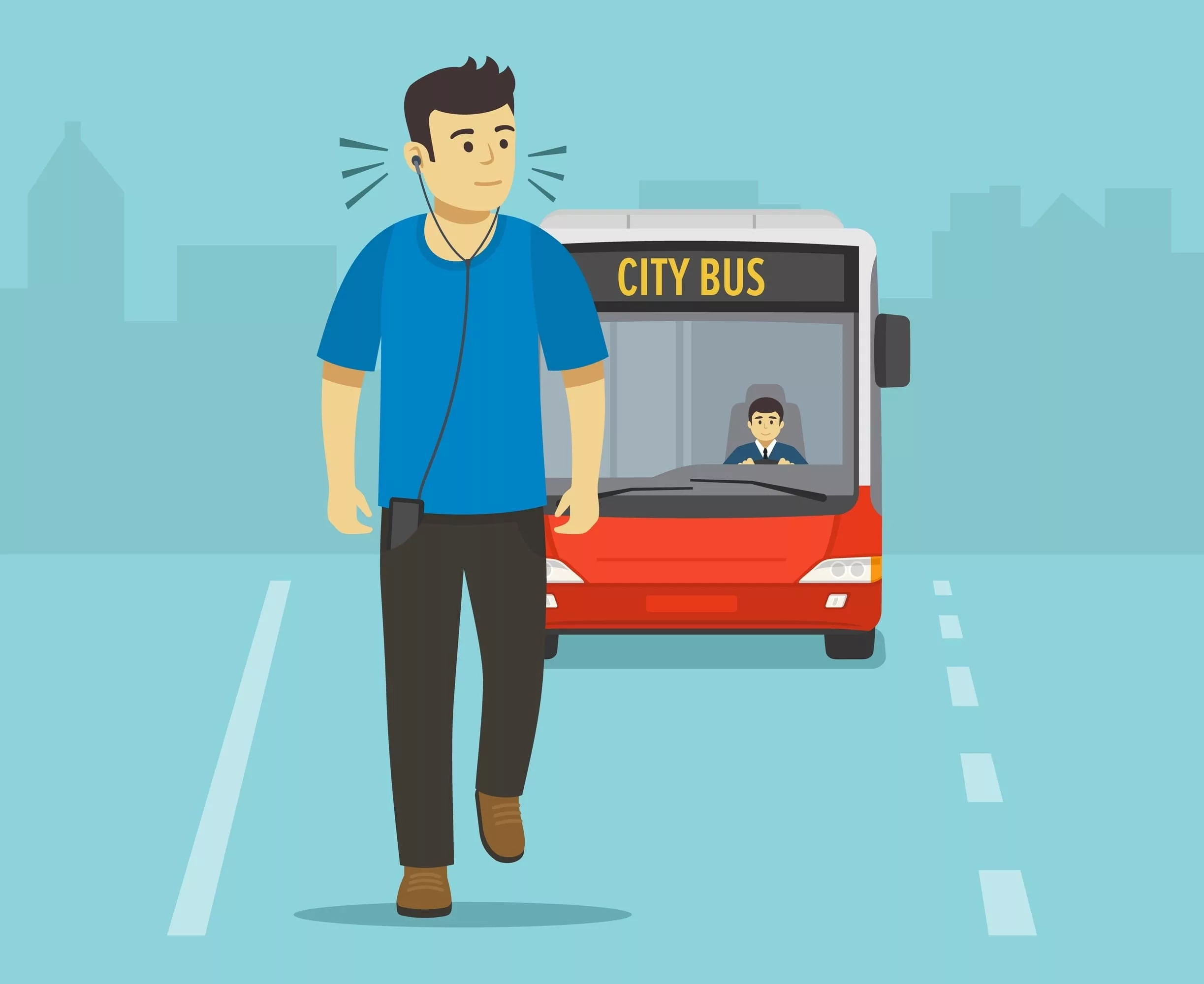When a city bus collides with a pedestrian or another vehicle, the aftermath can be devastating. Victims may face painful injuries, towering medical bills, and prolonged recovery periods. One of the first questions that may arise is whether or not you can sue the city if a city bus hits you.
Given the complex legal issues that dealing with government entities involves, the answer is not as straightforward as it may seem. It’s important to understand your rights, the potential outcomes, and how to avoid common pitfalls as you navigate these turbulent legal waters.
Understanding the mechanics behind this type of lawsuit can help you make informed decisions should you ever find yourself in such an unfortunate situation. Get in touch with an expert Miami auto accident attorney for swift legal assistance. Protect your rights and secure the compensation you deserve.
Understanding the Legal Framework
Many people are under the impression that they cannot sue the government. Cornell University’s Legal Information Institute explains that sovereign immunity is a legal concept in which an entity cannot sue the government unless it consents.
Throughout the years, sovereign immunity in the United States has applied primarily to federal and state governments, though these principles also apply to municipal governments. According to the Federal Tort Claims Act, waiving federal immunity is possible for certain types of claims and court decisions if a citizen suffers physical harm or property damage due to governmental agency actions. The passage of additional laws has made it possible to sue the state.
If a city provides public transportation through a bus line and is liable for an accident in which you suffer injuries, you can file a claim against them. The law waives immunity when a government agency’s actions harm a person, and municipalities have a claims process that deals with situations like this.
Circumstances Under Which You Can Sue a City
Public bus lines are common carriers. Investopedia explains that a common carrier is a private or public entity that transports goods or people from one place to another for a fee.
A municipality or a private company that the municipality contracts with operates most bus lines. Municipal transportation authorities can be liable for the harm their customers and other roadway users sustain when negligence is the cause of an accident.
The circumstances under which you can sue a city include:
- An accident involving other road users—including the drivers and occupants of motor vehicles, pedestrians, and bicyclists—in which the city bus driver was at fault. In most cases, the transportation authority provides insurance for the bus. Common carriers must carry extensive insurance policies to protect them financially from multiple claims, and since the city insures the vehicle, you file a claim against the city’s policy.
- Accidents occur because of improperly maintained buses and unqualified drivers operating the bus. City bus drivers must obtain a commercial driver’s license (CDL). The Federal Motor Carrier Safety Administration explains that to receive a CDL, a driver must garner additional skills and undergo skills testing to ensure they understand the regulations they and the carrier must comply with.
- Accidents involving unsafe bus stops or stations. The transportation authority must protect its customers from slips and falls at the station or on the bus.
If you suffered injuries in a city bus accident, an experienced personal injury lawyer can investigate the details of your case to determine liability. If another driver caused the accident, that driver would bear liability, not the carrier or the bus driver.
The Process of Suing the City
While it is possible to sue the city, this type of claim generally follows a different process than other traffic accident claims and has a much shorter deadline for pursuing compensation for personal injury.
The process includes these steps:
- When a bus accident occurs and a person suffers injuries, the injured party seeks immediate medical care and speaks with an experienced personal injury lawyer.
- The lawyer investigates the case and determines all sources of liability and the insurance resources these liable parties have that can compensate for the claim. They will also establish evidence that proves liability and present this information to the agency along with a value for the claim and documentation to support that value.
- If there is evidence that the city is liable for the bus accident, the lawyer will file a special notice with the transportation agency within a short period (usually within six months or less). This notice allows the government agency to investigate the accident and correct the negligent conditions that led to the injury. The agency has a specific amount of time to respond to the claim.
- If the agency fails to respond to the claim within a prescribed period, the claimant and their attorney have a specific period to file a personal injury lawsuit with the court.
Many states cap the compensation you can recover through a claim against the city. Your attorney can tell you if these caps exist and how they will have a bearing on your claim’s value. As with most personal injury claims, claims against governmental agencies are often resolved through settlement negotiations with the claimant’s attorney. Settlements provide benefits for both the claimant and the governmental agency.
A negotiated settlement is a faster way for the claimant to obtain compensation for the claim and saves them from the stress and time that court proceedings involve. Settlements are also beneficial for the city transportation authority and their insurer, as they save time, give them better control over the outcome, and generate less negative publicity than courtroom proceedings.
Potential Damages and Compensation
The average city transit bus is 39’2″ long, 8’4 inches wide, and 9’10” tall—much larger than most other vehicles on the roadway. City buses are more challenging to maneuver than other vehicles due to their massive size and a more deadly opponent in a traffic accident. Passengers and other vehicle occupants can suffer serious injury if a bus is involved in an accident, and those injuries can result in significant expenses.
According to Mira, a broken bone can generate more than $10,000 in costs, including primary treatment, a facility fee, anesthesia, X-rays, and rehabilitation. Permanent injuries, hospitalization, and/or a lifetime of treatment can cost up to hundreds of thousands more.
The compensation available through a claim against the city involves much more than simply reimbursing medical expenses. Bus accident claimants often miss work as they recover from their injuries and can seek compensation for lost earnings through the personal injury claims process.
If the injured party was the driver of another vehicle on the roadway, they could also face substantial damage to their car and seek compensation for the cost of repairing or replacing it. Additional out-of-pocket expenses can also be sought, including the cost of hiring someone to perform household duties that the injured party can no longer do themselves. The claimant may also need compensation for a permanent loss of earning capacity due to disabling injuries that prevent them from earning the same income as before.
Expenses, however, aren’t the only consequences those injured in bus accidents face. Suffering injuries can disrupt the claimant’s quality of life in numerous ways, including physical pain and suffering, emotional distress, the inconvenience of frequent medical appointments, the inability to participate in hobbies and activities, and more. This type of compensation, known as non-economic damages, can make up a significant portion of the overall award received through a negotiated settlement or court verdict.
While calculating the expenses for the economic portion of the claim is fairly straightforward and involves simply adding all compensable expenses, your attorney must consider several factors when valuing the non-economic portion.
Some of the factors that they will consider include:
- The severity of your injuries.
- The amount of insurance available.
- The presence of permanent injuries that may result in future expenses.
- The level of negligence demonstrated by the at-fault driver that resulted in the accident.
Usually, a lawyer will value the claim after the claimant’s injuries have stabilized and their doctor does not believe any further complications will occur, even if treatment continues.
What to Do Immediately After the Accident
Much of the evidence needed to prove a bus accident claim is available at the scene. Any evidence you can gather will be helpful to your attorney, such as photographs of the damage, the contact information of the police officer investigating the accident, and contact information for any witnesses. If your injuries are too severe, rest assured: your legal team can gather any needed evidence after the fact.
It is extremely important to obtain prompt medical treatment for your injuries. Even if you do not feel like your injuries are severe, you should have a medical evaluation anyway, both for your health and to create the documentation needed to prove your claim.
It is also essential that you hire a personal injury lawyer as soon as possible, as claims against governmental agencies almost always have a much shorter deadline than other types of accident claims. Speaking with a lawyer right away allows them to begin working on your case as soon as possible, thus protecting your right to compensation by meeting the deadlines imposed by the entity.
Common Mistakes to Avoid When Suing the City
While you may file a claim against a city transportation authority, claimants often make several mistakes during the process, including:
- Failing to seek prompt medical treatment to safeguard your health and begin the paper trail you will require to justify your claim’s value.
- Waiting too long to file the claim. While all personal injury claims have a statute of limitations, which refers to the amount of time the parties of a legal dispute have to file a lawsuit, governmental claims impose other deadlines that are much shorter. An attorney can manage the timing of your claim so your right to seek compensation through the court is upheld.
- Attempting to file the claim without an attorney. The legal process following a traffic accident is complex, especially when it involves a claim against the government. Just as you would go to a doctor if you needed surgery, trusting a lawyer to handle your claim places you in a better position to receive the compensation you need than going up against insurers and legal requirements alone.
- Posting about your case on social media. In today’s digital age, exercising caution when sharing information on social media is important, especially if you’ve been in an accident. Many claimants fail to realize that the city’s insurers and attorneys can access anything you put out there for others to see and use it against you to devalue or even eliminate the claim. Other parties may misinterpret innocent posts, leading to disputes over the veracity of your injuries or the accident itself. The use of social media posts as evidence is becoming more common in courtrooms, so refrain from posting on social media after an accident to avoid potential complications with your insurance claim.
Speak With a Personal Injury Lawyer About Your City Bus Accident Case

Suing a city for compensation after you are hit by a bus is incredibly complex, and an attorney has a crucial role in the process. Most personal injury lawyers offer free case evaluations, which you can use to learn more about the process and what your legal options are. Remember, the statute of limitations clock began ticking the day of the accident.
Secure peace of mind by promptly seeking the assistance of an experienced Miami personal injury attorneys. Their expertise guarantees a solid case, improved outcomes, and the necessary support during tough circumstances. Initiate the journey towards rightful resolution and relief today.
Related articles
Related articles Related articles Related articles Related articles Related articles Related articles Related articles Related articles Related articles Related articles
Personal Injury
02 Feb 2024
How Long After An Accident Can You Claim Injury?





